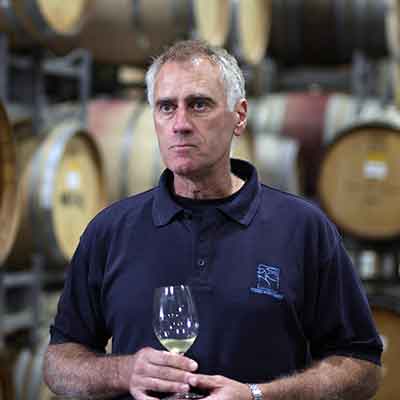|
Martin Williams graduated with an Honours Degree in Theoretical Chemistry & Biochemistry from the University of Sydney in Australia. Subsequently, he obtained a Master of Science in Oenology and Viticulture (Winemaking) at the University of California, USA. After returning to Australia, he was a winemaker based in the Yarra Valley for 15 years, before selling the winery he co-founded to start a PhD in Medicinal Chemistry at Monash University as a mature-age student in 2007. Currently, Martin is working as Research Fellow at Monash University, as a consultant in the wine industry and is one of the founders of the not-for-profit research association Psychedelic Research in Science & Medicine (PRISM).
How do you break the stereotypes in science?I am a late bloomer in PhD terms, starting my PhD at 42. I have continued to study and learn throughout my life between degrees so, undertaking the PhD was not an alien experience for me. However, I certainly respect other people's situations and concerns when it comes to late starts (i.e. financial and/or family situation).
I probably also break stereotypes by having retained my broad-ranging professional interests as my life journey has unfolded. Consequently, I am still involved in winemaking and I am bringing my skills and knowledge to bear in clinical research. In 2011, with some colleagues, we set up a not-for-profit called PRISM, with the objective to initiate an Australian contribution to psychedelic psychotherapy. There is a new recognition of psychedelics as useful adjuncts for mental health (e.g. anxiety and depression, eating disorders) and PRISM is contributing to the clinical research and the movement to destigmatise psychedelics. |
QUICK FIRE ROUNDIf you could have a coffee with anyone, who would it be and what is the one question you would ask them? Erwin Schrödinger - did he ever realise just how difficult (and painful) it is in practice to stuff a cat into a box? Hardest time in science The hardest time was when the funding ran out while I was doing my postdoctoral research. It was in those two years I started building a plane and I just stuck with it. I had a project, an objective and it kept me going, if not I would have probably left and gotten a job elsewhere. Greatest achievement My greatest achievement has not been done yet! |
How has this diversity affected your scientific career?
It undoubtedly has meant that I have not risen to any particular academic or professional heights up to this point in my life, but it has certainly been an interesting ride along the way. I have made the trade-off that I probably will not achieve the highest pinnacle in any single field, but I do a bunch of things reasonably well and that gives me a lot of satisfaction. It might also indicate undiagnosed ADHD!
Being older when I started a PhD meant that many of the faculty academics were the same age as me. I was in a strange position of being on an equal social and age footing, but being a student, I was never sure if I actually fit in. It also meant missing out on grants, as I did not have a competitive track record that was expected based on my appearance or birth year.
There are also positives. Coming back to science with no track-record means I do not have anything to lose, so I can take more risks. I have also been able to use my age, experiences and networks to be taken more seriously. Additionally, skills and financial responsibility come with maturity, which has helped me during my PhD.
Being older when I started a PhD meant that many of the faculty academics were the same age as me. I was in a strange position of being on an equal social and age footing, but being a student, I was never sure if I actually fit in. It also meant missing out on grants, as I did not have a competitive track record that was expected based on my appearance or birth year.
There are also positives. Coming back to science with no track-record means I do not have anything to lose, so I can take more risks. I have also been able to use my age, experiences and networks to be taken more seriously. Additionally, skills and financial responsibility come with maturity, which has helped me during my PhD.
If you could give one piece of advice to a young aspiring scientist, what would it be?
In my pilot training, one of the most important things I have learnt was that when you learn things, learn to do it well and learn to do it professionally. Mistakes are not fatal as long as you can walk away.
It is important to develop and maintain broad interests and keep a broad mind. Do not take things too seriously and remember to have some fun along the way. Also, remember to stay focused on key projects if you are aiming for the academic stratosphere. Always finish the things you started and do not settle for mediocrity.
It is important to develop and maintain broad interests and keep a broad mind. Do not take things too seriously and remember to have some fun along the way. Also, remember to stay focused on key projects if you are aiming for the academic stratosphere. Always finish the things you started and do not settle for mediocrity.
How has their story inspired you? Leave your comments here!
Remember to be respectful to others in your comments. Comments using hateful language, keywords, spam or splog-like URLs, or suspicious information will be deleted.
